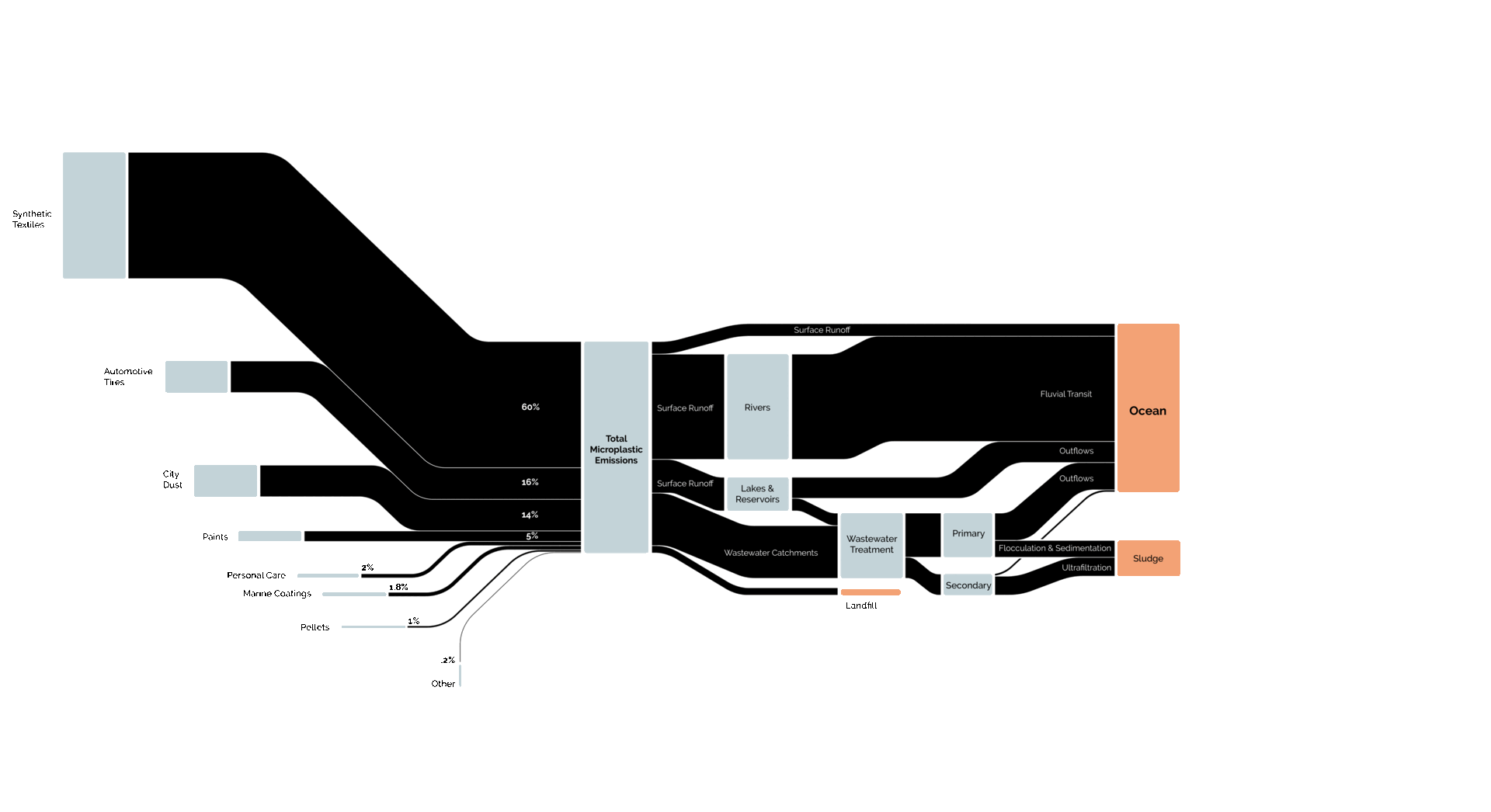
Building systems to remove sub mm microplastic from the worlds waters.
Microplastics: An Emerging Threat
Microplastics are plastic pieces smaller than 5mm in diameter down to 1 micron in size. At this scale most are invisible to the naked eye and can easily be ingested by both aquatic wildlife and humans.
Microplastics oftentimes contain chemicals that are carcinogenic, neurotoxic, and disrupt reproductivity.
With global microplastic concentrations on the rise, it is likely that, if left unmanaged, microplastics will pose the greatest health hazard facing the next generation.
Our Mission
Microplastics are everywhere. In our oceans, lakes, rivers, and even the water we drink. It’s time for things to change.
PolyGone’s mission is to build systems for microplastic interception across key areas of microplastic emission and concentration. In doing so, we will safeguard water quality, human health, and aquatic ecosystems.
Our Tech
PolyGone has developed a patented media that passively binds to microplastics in water.
This media serves as the core of PolyGone’s proprietary ecosystem of microplastic filtration systems, designed to intercept microplastics from a variety of aquatic environments.
90%
Cheaper than alternatives
Up to
98%
100%
Filtration performance
Passive & Recyclable
Zero
Chemical Emissions
WORLDS FIRST MICROPLASTIC REMOVAL PILOT
|
520,000,000 MICROPLASTICS REMOVED
|
ACUA WASTEWATER TREATMENT PLANT
|
WORLDS FIRST MICROPLASTIC REMOVAL PILOT | 520,000,000 MICROPLASTICS REMOVED | ACUA WASTEWATER TREATMENT PLANT |
The World’s First Microplastics Removal Pilot
720 Filters Deployed
Operating Since September 2024
40 Million GPD Capacity
Serves 220,000 Households
Phase 2 in Development

A New Plastic Paradigm
80% of all microplastics end up in the ocean.
Once there, they are almost impossible to recover and quickly permeate aquatic ecosystems.
Almost all microplastics travel via rivers, reservoirs, and treatment channels.
Intercepting microplastics from these 3 environments, will drastically reduce microplastic contamination globally.
Microplastics have never been recovered at scale until now.
PolyGone will be the first supplier for microplastic upcycling, turning this hazardous waste into a resource.
Services
Microplastic Analysis
Our state of the art lab can analyse water samples to quantify and classify microplastics from as low as $349 per sample.
Removal Systems
Our team offers a range of systems for microplastic removal and recovery.
Contact Us
Interested in working together? Fill out some info and we will be in touch shortly. We can’t wait to hear from you!


